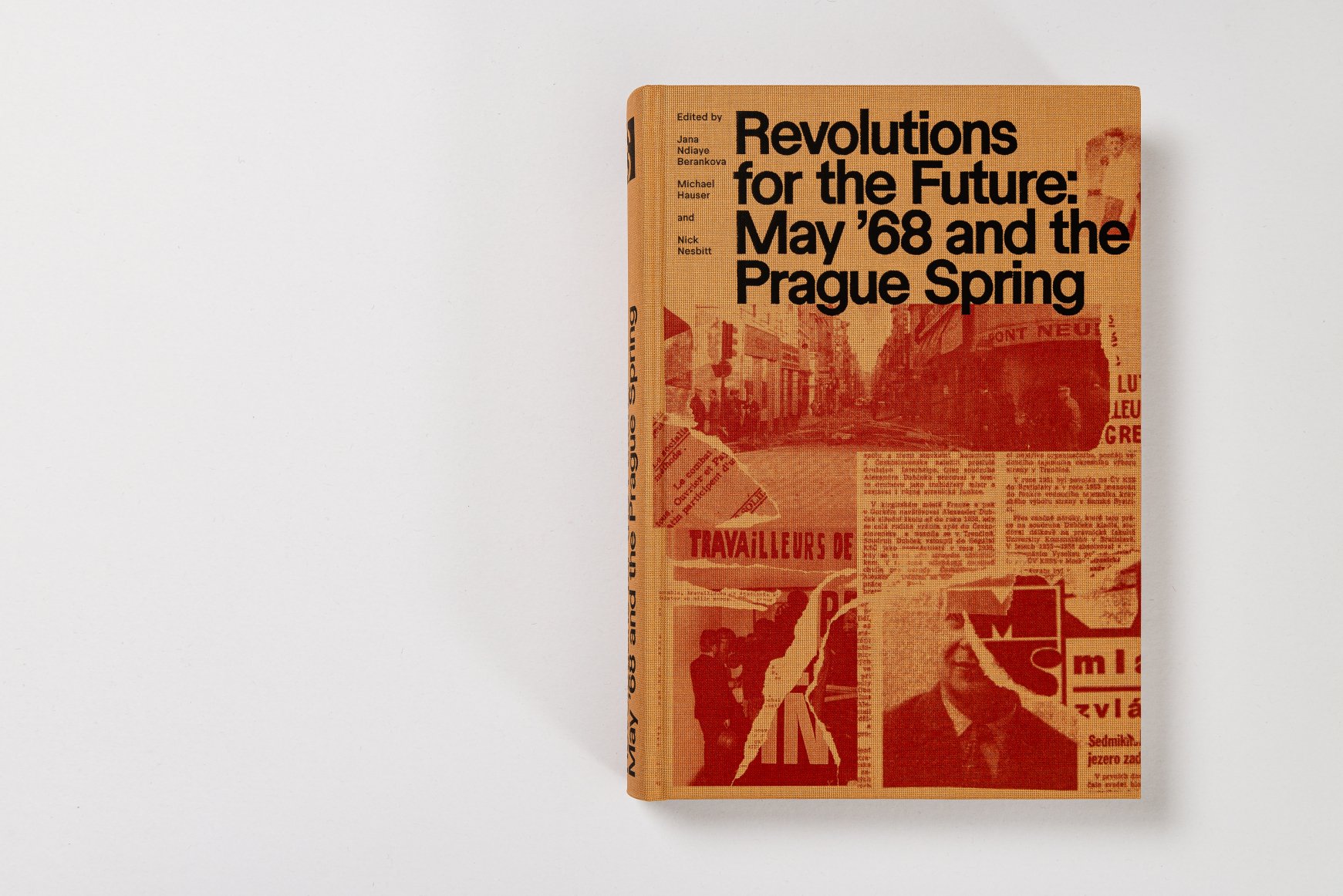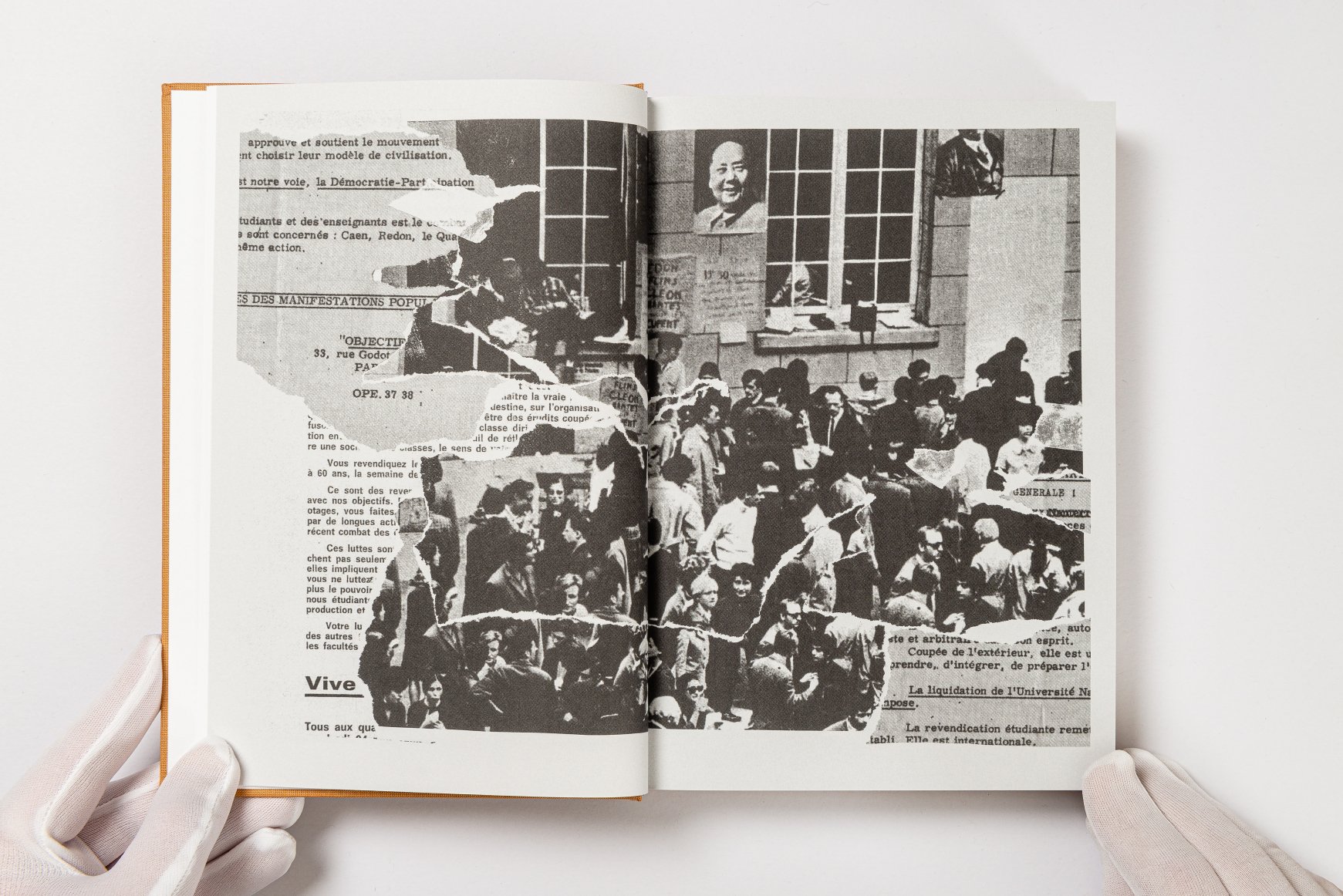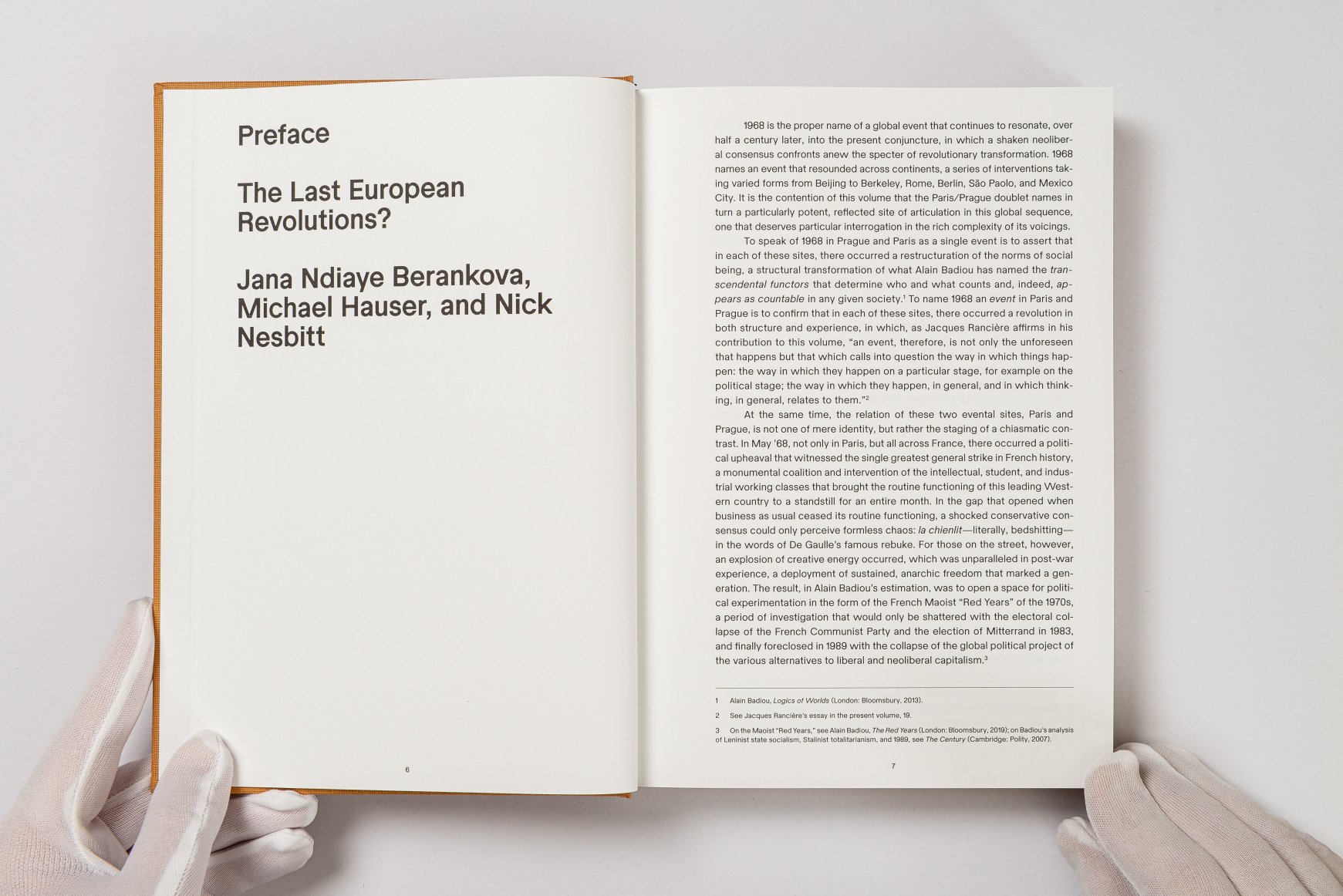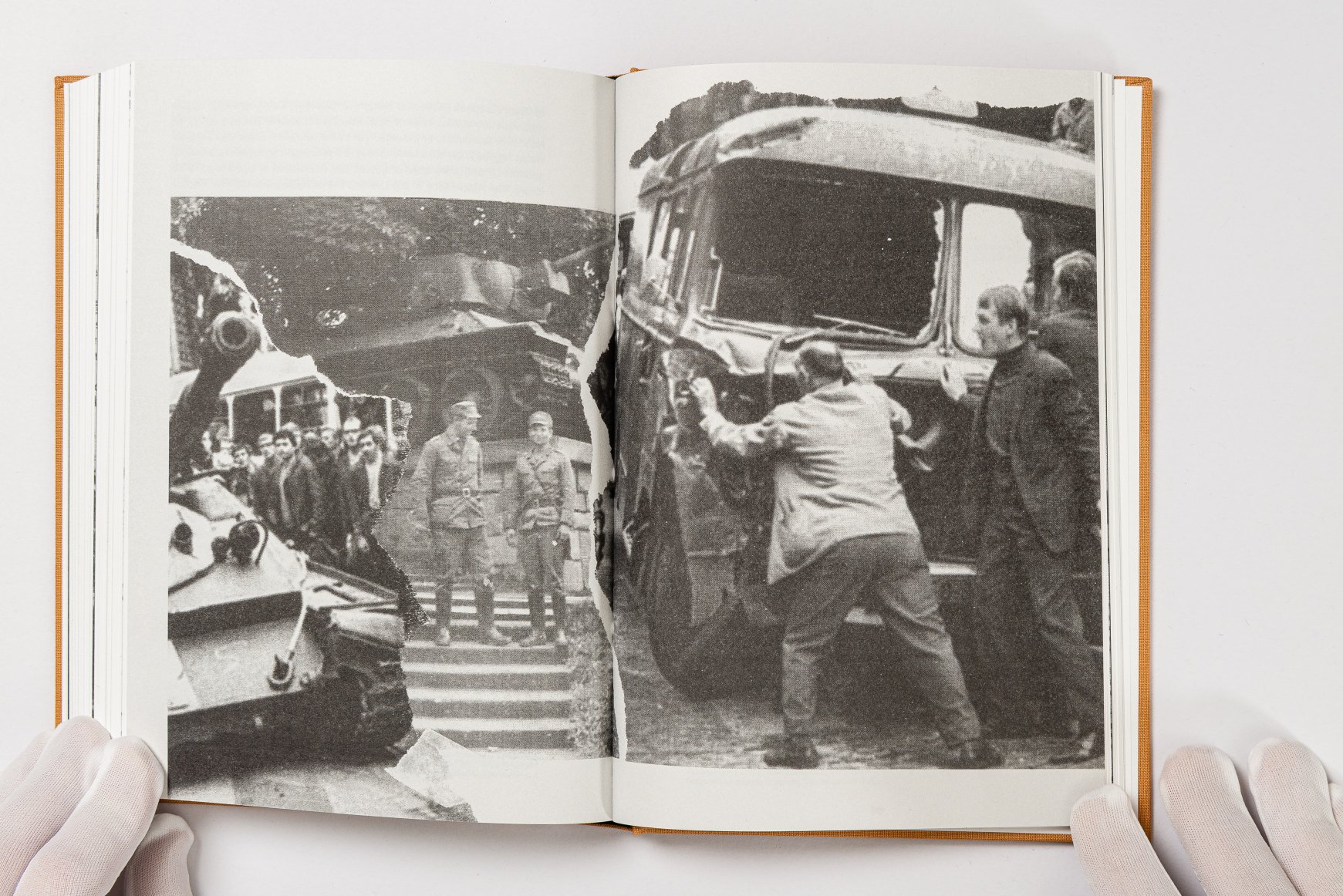Revolutions for the Future: May '68 and the Prague Spring
Edited by Jana Ndiaye Berankova, Michael Hauser, and Nick Nesbitt
Contributors: Jacques Rancière, Étienne Balibar, Vincent Jacques, Jana Ndiaye Berankova, Reza Naderi, Nick Nesbitt, Michael Hauser, Petr Kužel, Jan Kober, Ivan Landa, Jan Mervart, Katarzyna Bielińska, Joe Grim Feinberg
Graphic design: Lukáš Kijonka and Michal Krůl, Kolektiv Studio
Publication: November 2020
25 x 17,5 x 3,5 cm
In English
29 EUR
324 pages
ISBN: 978-2-9569056-1-5
The book is published as a hard-cover edition bound in terracotta cloth with a foil-stamp print. It includes black-and-white illustrations made from torn posters, tracts, and old photographs.
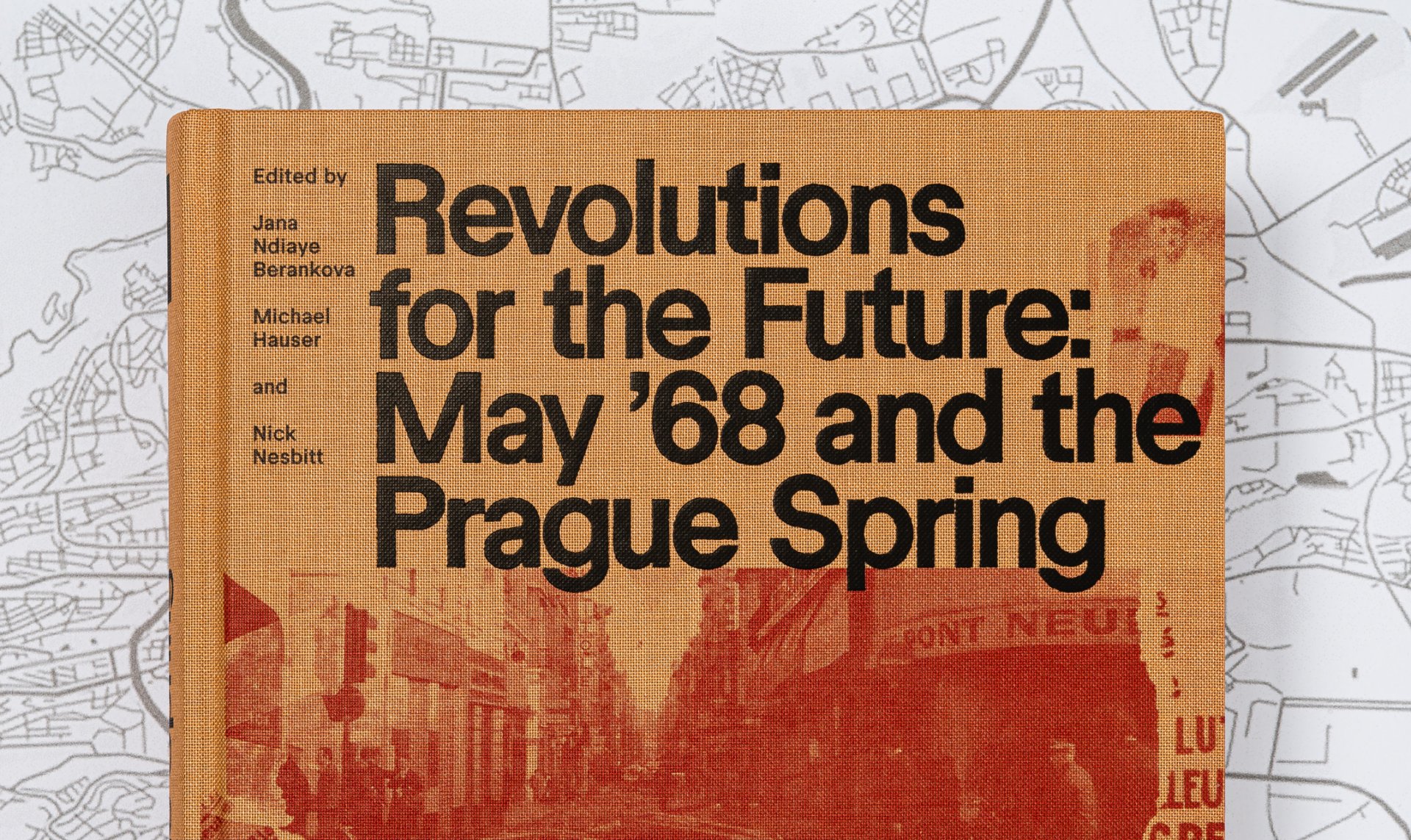
1968 is the proper name of a global event that continues to resonate, over half a century later, into the present conjuncture, in which a shaken neoliberal consensus confronts anew the specter of revolutionary transformation. It is the contention of this volume that the May ’68/the Prague Spring doublet names in turn a particularly potent, reflected site of articulation in this global sequence, one that deserves particular interrogation in the rich complexity of its voicings. The essays in this volume interrogate the French and Czechoslovak articulation of the last two European revolutions and offer criticism of the putative ‘end of ideology’ said to have followed 1989. They assemble a generation of French and Central European philosophers in order to work through the philosophical heritage of 1968.
On the French side of the chiasmus May ’68/the Prague Spring, the book includes Jacques Rancière’s essay on May ’68 and a major study by Étienne Balibar on Jacques Lacan’s “Four Discourses.” Vincent Jacques interrogates Gilles Deleuze and Felix Guattari’s conceptualization of the concept of the “event.” Three studies are devoted to placing Alain Badiou’s work in the context of post-1968 French philosophy: Jana Ndiaye Berankova compares Jacques-Alain Miller’s and Badiou’s concept of the “suture,” Reza Naderi analyses Badiou’s The Concept of Model in relation to Sylvain Lazarus’s politics, and Nick Nesbitt thinks through the concept of commodity in Badiou and Marx. On the Central European side of this chiasmus, the book presents seminal research by a generation of contemporary scholars whose intention is to bring to the forefront the long-forgotten heritage of Czechoslovak Marxist humanism and the left-wing thought of the 1960s. Michael Hauser opens this section of the book by reading the events of the Prague Spring through Jacques Rancière’s notion of politics. Petr Kužel and Jan Kober explore the political innovations brought forward by the Prague Spring: the notion of self-governing socialism and of the workers’ councils, and the legal reforms of the 1960s. Ivan Landa analyzes the left-wing criticism of the Scientific-Technological Revolution, Jan Mervart uncovers the history of Maoist thinking in 1960s Czechoslovakia, and Katarzyna Bielińska places the Prague Spring in the context of the Polish movement and the Yugoslavian thinkers of the Praxis school. As a conclusion, Joe Grim Feinberg interrogates the putative end of this historical and philosophical sequence in 1989.
The title of this book, “Revolutions for the Future,” implies that sometimes, we can discover future orientations by looking into the forgotten possibilities of historical events. The key to the future might as well be buried under the obliterated paths of the past. And while it is true that the “events of 1968” became a paradigmatic moment for an entire generation of philosophers and that a whole new series of philosophical concepts can be traced back to this moment, by studying them attentively, we might be able to understand our present crisis. 1989 became a date symbolizing, for some, the end of history; for others, who recalled the hopes that had been foreclosed, it was a strange, incomprehensible catastrophe. And yet, the authors of this book doubt that such an end might be definitive. Through their analysis of the theoretical contributions of 1968, they almost seem to follow Louis Althusser’s famous reformulation of Lenin: “without theory, no revolutionary action.” “Revolutions for the Future” points to the possibility that the forgotten affirmative aspects of these events can be resurrected at any moment; 1968 might as well be an unfinished revolution, a work-in-progress, a specter haunting our current century.
